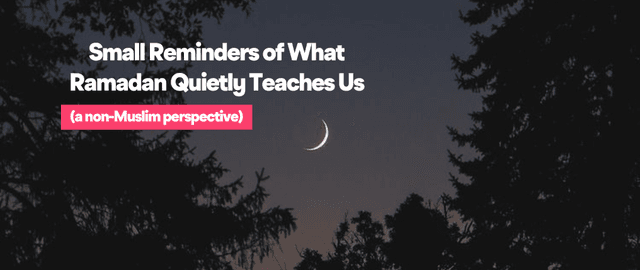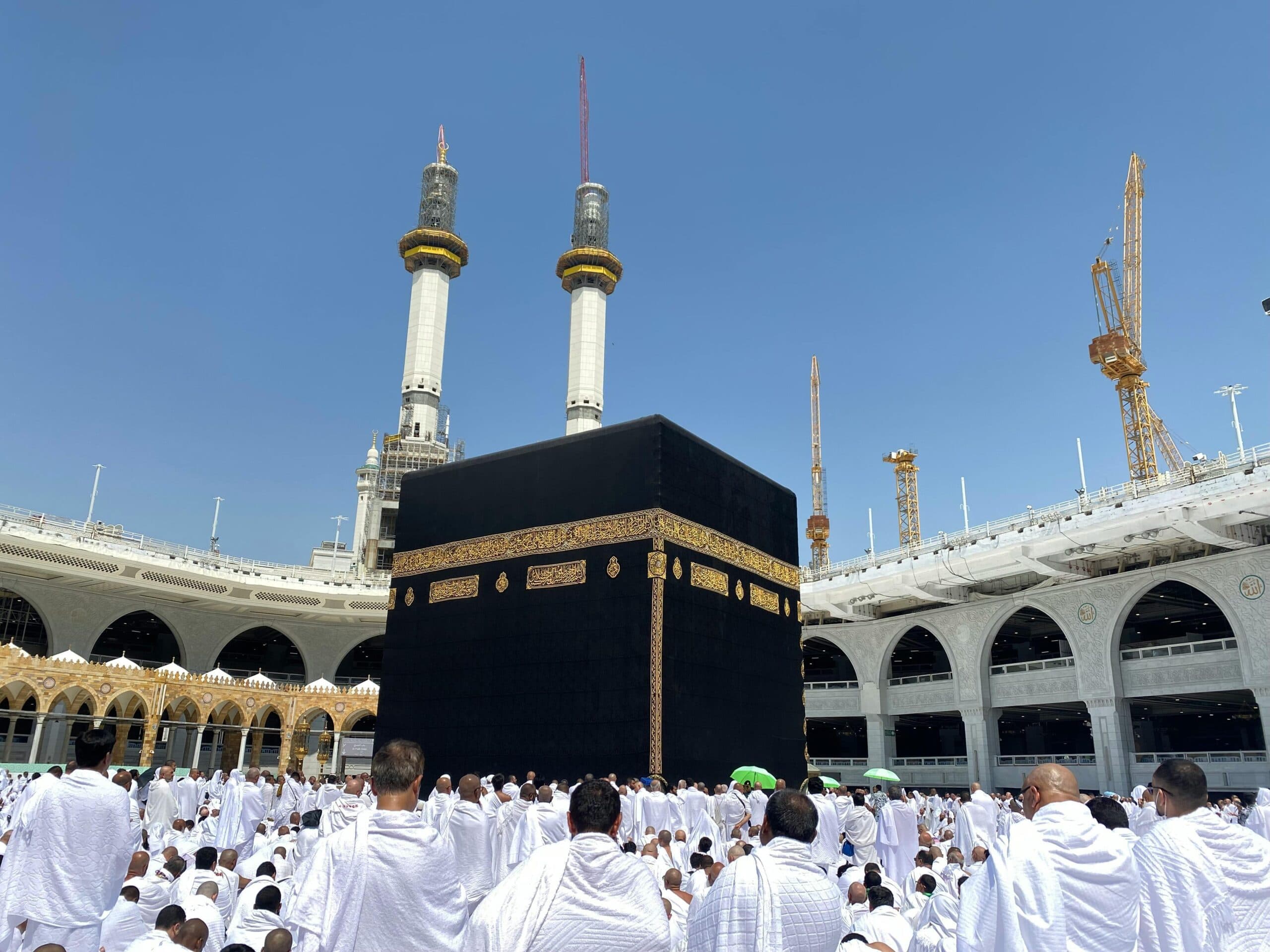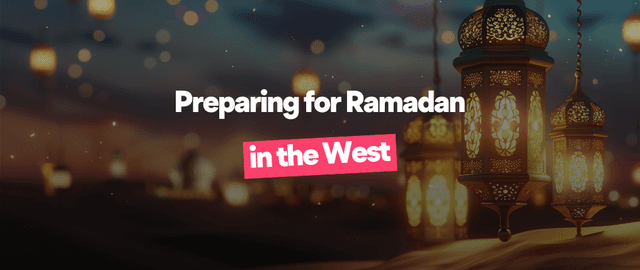
Hajj: The Sacred Pilgrimage
May 28, 2025

History of Hajj and the First Pilgrimage:
Every year in the final month of the Islamic calendar, Dhul Al-Hijjah millions of muslims from around the globe embark on the Hajj pilgrimage. A pillar of islam, that is obligatory on financially capable muslims who are physically and mentally fit.
The rituals of Hajj date back to around 4000 years ago, when Prophet Ibrahim AS was ordered by Allah SWT to leave his wife, Hajera (Hager) and infant son, Ismail in the desert; that would later come to be known as Makkah. The act of running between Safa and Marwa is replicating Hajera RA when she ran between the hills, looking for water for her son. It was then, when Angel Gibrael AS appeared and the spring of zamzam burst forth from the ground. The availability of water led to civilization there and eventually when Ibrahim AS was ordered to return to his family, Ibrahim AS and Ismail As to reconstruct the Kaaba and establish it as a place solely for the worship of Allah (SWT). This event is mentioned in the Quran as follows:
And ˹remember˺ when Abraham raised the foundation of the House with Ishmael, ˹both praying,˺ “Our Lord! Accept ˹this˺ from us. You are indeed the All-Hearing, All-Knowing. (Quran 2:127)
However, over time the Kaaba lost its monotheistic purity, and became a place of idol worship and polytheistic religious practice. In the year 630 AD, the prophet led his followers from Medina to Mecca, destroying the idols and re-dedicating the site to the worship of the one God. Two years later, he performed the first ever Islamic pilgrimage, laying out to his followers the rituals of the Hajj.


Looking for your soulmate?
You won’t find your soulmate on this blog post but you might find them on Muzz - the world’s biggest Muslim dating and marriage app.
Maximize your Reward: 10 best days of Dhul Al-Hijjah
One may not be able to embark on Hajj, but can still reap multiple benefits during the Holy month of Dhul Al-Hijjah.
“There are no days during which righteous deeds are more beloved to Allah than these days,” meaning the (first) ten days of Dhul- Hijjah. They said: “O Messenger of Allah! Not even Jihad in the cause of Allah?” He said: “Not even Jihad in the cause of Allah, unless a man goes out with himself and his wealth and does not bring anything back.” (Sunan Ibn Majah)
These 10 days of Dhul Al-Hijjah, give Muslims a once-in-a-lifetime chance to redeem themselves and gain immense blessings and rewards. So, what can be done to gain maximum reward and forgiveness in these ten days?
- Fasting: It is sunnah to fast the first nine days of Dhul Al-Hijjah as Prophet Muhammed (PBUH) used to fast during these days. Especially it is highly recommended to fast on the Day of Arafah(9th Dhul Al-Hijjah) as it is the most blessed day of the year.
Prophet Muhammad (PBUH) said, “It (fasting on the Day of ‘Arafah) expiates the sins of the past year and the coming year.” (Muslim) - Quran: Reciting the Holy Quran in the sacred days of Dhul Hijjah is one of the best acts of worship that one can perform to seek the blessings of Allah SWT.
- Dhikr and Tahajjud: Increase your dhikr. In Makkah, the Talbiyah will be on every pilgrim’s tongue throughout the day and night; whilst every Muslim should praise and remember Allah constantly. Engage in worship in the last third of the night, remember Allah SWT is closest to the servant during this time. Ask Allah SWT for rizq, sustenance, good health, forgiveness and right guidance.
- Repent and give sadaqah: During these 10 days, repeatedly ask for forgiveness and also engage in voluntary acts of charity. Remember even the smallest acts such as a smile, or a helping hand, are seen as acts of sadaqah.

Types of Hajj:
There are three types of Hajj: Tamattu’, Ifrad and Qiran.
- Al-Tamattu: In this mode, a person enters the state of Ihram for Umrah alone, saying, “Allahumma Labbaik ‘Umrah.” After completing the Umrah, they exit the state of Ihram. Later, when the time for Hajj arrives, they enter the state of Ihram for Hajj from Makkah, and as part of the Tamattu pilgrimage, they must offer a sacrifice. This is considered the easiest way.
- Al-Ifrad: In this mode, a person enters the state of Ihram for Hajj alone, saying, “Allahumma Labbaik Hajj.” They do not need to offer a sacrifice.
- Al-Qiran: This mode involves entering the state of Ihram for both Hajj and Umrah together, saying, “Allahumma Labbaik Hajj and ‘Umrah.” The Qiran pilgrim follows the same actions as the Ifrad pilgrim but must also offer a sacrifice.
How to perform Hajj – Key steps in Hajj:
- Arrival in Makkah – The very first rite of Hajj is to make a pure intention and to enter ihram – when crossing the outer boundaries of Mecca, called Miqat. The pilgrims then set their intention for the type of Hajj they will be performing and accordingly perform Umrah.
- 8th Dhul Hijjah (Mina, the tent city) – After concluding tawaf and sai, the pilgrims travel by foot on pilgrim paths or take a bus for the 8km (five-mile) journey to Mina, a tent city just outside of Makkah. The pilgrims spend the day in Mina, setting out the next morning at dawn for Mt.Arafat. Most of the time in Mina is spent in prayer, supplications and remembering Allah (God).
- 9th Dhul Hijjah (Day of Arafah) – During the second day of Hajj, 9th day of Dhu-al-Hijjah, pilgrims travel to Arafat from Mina reciting Istaghfar and making supplications. Upon reaching Mount Arafat, pilgrims observe Duhr and Asr combined with Qasar prayers near the Jabal al-Rahmah from noon to sunset. This act is known as Waquf (standing before Allah).
- Muzdalifah – Post sunset, pilgrims head to Muzadalifah (a town between Mina and Mt. Arafat) to observe the evening prayers and rest the night until Fajr prayers in preparation for the next day’s ritual of stoning the devil. Pilgrims also collect pebbles here for Rami (stoning of the jamarat – pillars).
- 10th Dhul Hijjah (Eid Day) – After performing Fajr Salah on the 10th of Dhul Hijjah you will depart Muzdalifah and go back towards Mina while continuously reciting the Talbiyah. On this day, Pilgrims perform the Hady Qurbani (sacrificial animal) and also commence the first of three days ’stoning of the devil’s rite or Rami.
- Shave/Trim Hair (Halq/Taqsir) – Men should get their head completely shaved, or get their hair clipped. While women are forbidden to shave their heads and only allowed to have a lock or strand of their hair clipped.
- Return to Makkah – Perform Tawaf Al Ifadah and Sai.
- 11th, 12th and 13th Dhul Al Hijjah – The stoning ritual is repeated by throwing pebbles at two other monuments other than Jamrat al Aqabah – Jamrat Oolah (the first Jamrat) and Jamrat Wustah (middle Jamrat). The pilgrim may leave for Makkah at the evening of Dhul Al Hijjah, but if he remains in Mina then the ritual of stoning must be performed on 13th Dhul Al Hijjah as well.
- Farewell Tawaf – The next and the final step is the farewell Tawaf (Tawaf al-Wida ), bringing an end to the hajj rituals.
Required permits for Hajj:
The permits are available through the Nusuk platform. The Ministry of Interior, in partnership with SDAIA, launched the Tasreeh Platform to streamline Hajj permit issuance. Integrated with the Nusuk platform, it authorizes access to Makkah and the holy sites for pilgrims, workers, volunteers, and transport vehicles. It is imperative to hold a Hajj permit, or individuals risk severe penalties.
Preparing oneself for Hajj:
Hajj is a journey that requires more than just spiritual intention, it is tough on your body physically and mentally. To have a fulfilling Hajj, preparing oneself with ample resources and exercise, will help in completing it successfully. Below are some tips you can follow to prepare yourself for this once in a lifetime’s journey.
Physical Prep
- Exercise: Hajj requires lots of physical strength and stamina. Engage yourself in exercise in months prior to Hajj! Go on walks daily and build your stamina.
- Boost your immunity: Start eating healthy and practice habits that boost your immunity prior to Hajj. For example, taking honey daily, eating vegetables, dates, healthy fats like avocado, etc.
- Preventive care: Carry medicine that suits you from your home country and other supplements such as cough drops, vitamin C, etc. Take medicine as soon as you feel sick, and seek medical help as soon as you can.
- Supplies: Make a specific list for the days of Hajj before you leave for Mina (i.e. stuff you will pack in your backpack) Take your ‘worship tools’ to use during the waiting time. A lot of times people find themselves without anything to do during the long stretches. Come prepared with a Quran, seerah (biography of the Prophet PBUH) book, or dhikr (remembrance/prayer) beads.
- Dua book: Having a small notebook with a few supplications as well dua you intend to make can be extremely helpful. This will help you meet your dua goals and ensure no dua is forgotten.
Mental & Spiritual Prep
- Know the requirements of performing Hajj: Familiarise yourself with the rites of Hajj to avoid any confusion and make notes accordingly. It’s common to not know details, thus it’s important to seek knowledge before Hajj.
- Build a Strategy: Lay down a plan on how you will spend your days and download the apps required to visit certain areas like rawdah in advance.
- Surrender to Allah swt: Get in the right mindset by surrendering yourself to Allah (swt). You are going on Hajj, you will be tested in different ways so remind yourself to be patient and not to complain. You are invited as Allah’s guests so use the correct manners that a guest should have. As a bonus, try to catch yourself before reacting negatively to a test by acknowledging that what is making you upset is the test.
- Day of Arafah: Use the full day of Arafah for worship—not just the time after Asr (late afternoon prayer). Many people fall into this trap and spend time sitting, eating and talking on the most important day of Hajj and only start making dua after Asr.The Prophet ﷺ used to make dua the entire day and intensified the supplication after Asr.
- Ask Allah for help & Istighfar: Remember this is a journey of a lifetime, so set your intentions and ask Allah for help repeatedly – ask Allah for guidance, ease, hidayah, acceptance, good companionship and forgiveness!
Lessons that can be drawn from Hajj for Marriage:

The journey of Hajj can actually prepare you for marriage, both instances hold many values that lay the foundation for a successful journey.
Marriage, like Hajj, begins with intention and commitment. Just as every pilgrim begins their sacred journey with a sincere niyyah (intention) for the sake of Allah, a successful marriage is built on the foundation of honest, heartfelt commitment to one’s partner—also for the sake of pleasing Allah. When both partners dedicate themselves to this journey with clarity and sincerity, the union becomes not just a worldly arrangement, but a sacred act of worship.
Both Hajj and marriage require sacrifice and patience. The journey of Hajj is marked by physical and emotional trials—long walks, intense heat, crowded spaces—all of which cultivate sabr (patience) and humility. Similarly, marriage challenges individuals to sacrifice ego, prioritize their spouse’s needs, and invest in the relationship even when it’s difficult. True love in marriage grows not from taking, but from giving—time, effort, and compassion.
Forgiveness and renewal are central to both journeys. Hajj offers believers a chance for spiritual cleansing, seeking Allah’s mercy and returning home renewed. In the same way, marriage is an ongoing process of renewal—of forgiving mistakes, healing wounds, and striving to improve together. Just as pilgrims return transformed, couples who approach their relationship with mercy and a willingness to grow can continuously rediscover peace and harmony.
Overall, what Hajj requires is patience, tawakkal, and sincere intention – a journey of a lifetime that should change you for lifetime and push you towards goodness. May Allah make it easy for all pilgrims and invite all muslims for this beautiful journey! Remember, even if you are not going for Hajj, there is ample reward to collect in the first ten day of Dhul Hijjah – don’t miss out! May Allah accept all our efforts!

